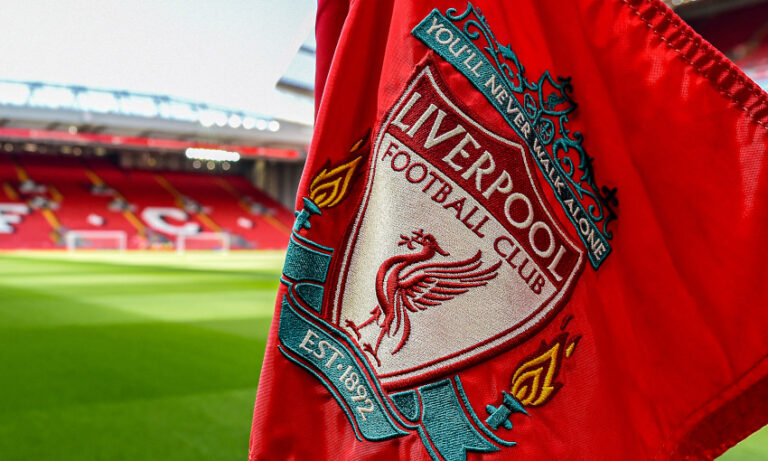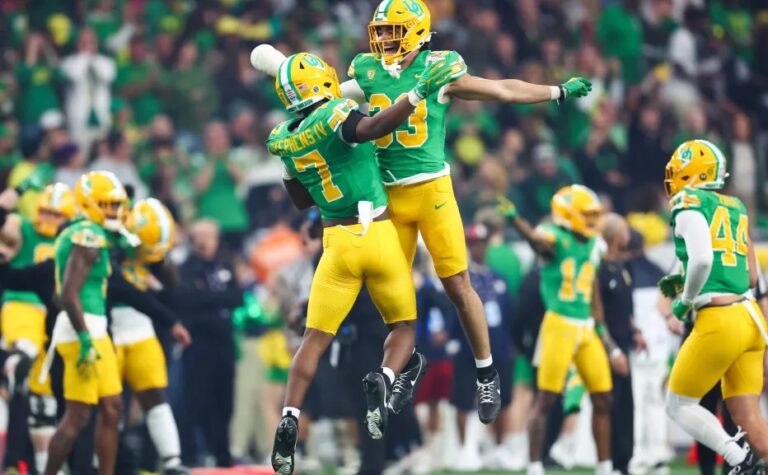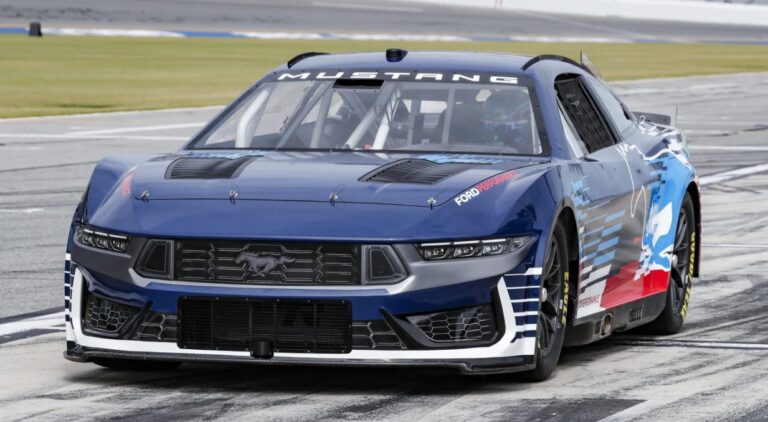Unveiling the Legacy: A Historic Glimpse into Rutgers Football
Step right up and prepare to be transported through time! Today, we have something truly special in store for you. We’re delving into the riveting world of Rutgers football, where legends were born and legacies took root. From its humble origins in 1869 to its present-day prominence, this storied program has experienced triumphs, defeats, and everything in between.
Get ready to journey back through the annals of history as we unveil the fascinating tale behind Rutgers football. Buckle up, because this is one ride you won’t want to miss! So grab your Scarlet Knight gear and let’s dive headfirst into the captivating world of Rutgers football!
Early history (1869–1958)
It all began in 1869 when Rutgers University took the field for their first-ever football game. Back then, the rules were different, and it was more akin to a hybrid of soccer and rugby. Despite these early challenges, Rutgers fostered a spirit of determination that would shape the program’s future.
As time went on, Rutgers continued to make strides in the sport. The iconic birthplace of college football saw its team evolve and adapt to new strategies and techniques. From those early years until 1958, fans witnessed countless moments of grit and glory as Rutgers laid the foundation for what would become an enduring legacy in college football history.
John Bateman era (1960–1972)
During the John Bateman era from 1960 to 1972, Rutgers football experienced significant growth and success. Coach Bateman was known for his innovative defensive strategies, which helped elevate the team’s performance on the field.
Under Bateman’s leadership, Rutgers achieved its first winning season in over a decade in 1961. The team continued to improve throughout the 60s and early 70s, culminating in an undefeated regular season in 1976. This remarkable achievement earned them a spot in the Peach Bowl where they faced off against Arizona State.
Bateman’s tenure as head coach not only brought about victories but also fostered a sense of pride and unity within the Rutgers community. His impact on the program would be felt for years to come as he laid down a strong foundation for future successes.
Frank Burns era (1973–1983)
The Frank Burns era of Rutgers football, spanning from 1973 to 1983, marked a significant period in the team’s history. Under Burns’ leadership as head coach, the Scarlet Knights experienced both highs and lows.
During this time, there were notable moments of triumph for the Rutgers football program. The team achieved winning seasons and made several appearances in bowl games. These accomplishments brought excitement and pride to the players, coaches, and fans alike.
However, it was also a period that presented its fair share of challenges for the Scarlet Knights. They faced tough competition within their conference and had to overcome various obstacles on their journey towards success. Despite these difficulties, Burns instilled a sense of resilience in his players, pushing them to give their all on the field.
The Frank Burns era left an indelible mark on Rutgers football. It revealed both the potential for greatness and the need for perseverance in order to achieve it. This chapter would set the stage for future generations of Scarlet Knights who would strive to build upon this legacy with determination and passion.
Dick Anderson era (1984–1989)
The Dick Anderson era of Rutgers football spanned from 1984 to 1989, leaving a lasting impact on the program. Anderson brought a fresh perspective and innovative strategies to the team, igniting a sense of excitement among players and fans alike.
Under Anderson’s leadership, Rutgers saw significant improvements in both performance and results. The team displayed resilience and determination on the field, showcasing their potential as contenders in the competitive college football landscape. With his keen eye for talent, Anderson recruited skilled players who would go on to make notable contributions to the program.
Anderson’s tenure marked an important chapter in Rutgers’ history. His dedication to excellence laid the foundation for future successes and set high expectations for subsequent coaches. The impact he had on shaping the team’s identity is still felt today, as his influence continues to resonate within every aspect of Rutgers football.
Doug Graber era (1990–1995)
During the Doug Graber era (1990–1995), Rutgers football experienced a mix of highs and lows. Graber took over as head coach in 1990, inheriting a program that had struggled in recent years. He aimed to bring stability and success to the team.
Under Graber’s leadership, the Scarlet Knights showed promise at times, with notable victories against programs like Penn State and Michigan State. However, they also faced their fair share of challenges, struggling to maintain consistency throughout his tenure. Despite some ups and downs, Graber’s era laid the groundwork for future improvements within the Rutgers football program.
Terry Shea era (1996–2000)
The Terry Shea era (1996–2000) marked a period of transition and growth for Rutgers football. Under Shea’s leadership, the team experienced both highs and lows, but there were notable improvements in performance.
During his tenure, Shea implemented new strategies and recruited talented players to strengthen the roster. The team showed glimpses of potential with some impressive victories against tough opponents. However, inconsistency plagued the Scarlet Knights during this time, resulting in a mixed overall record.
Greg Schiano era (2001–2011)
The Greg Schiano era (2001–2011) marked a significant turning point for Rutgers football. Under his leadership, the team experienced a remarkable transformation and emerged as a formidable presence in college football.
Schiano’s tenure was characterized by his relentless drive to build a winning program. He implemented a strong recruiting strategy, attracting top talent to Rutgers and instilling a culture of hard work and discipline. The Scarlet Knights quickly gained recognition for their tenacious defense, showcasing their ability to shut down opponents with fierce determination. With Schiano at the helm, Rutgers earned its first bowl victory in nearly three decades, solidifying their status as contenders on the national stage.
Throughout Schiano’s tenure, he made it clear that mediocrity was not an option for the Scarlet Knights. His unwavering dedication and commitment to excellence laid the foundation for future success, setting high standards both on and off the field. Under his guidance, Rutgers became known for its grit and resilience – qualities that would continue to define the program in years to come.
Kyle Flood era (2012–2015)
During the Kyle Flood era from 2012 to 2015, Rutgers football experienced both highs and lows. Flood took over as head coach after the departure of Greg Schiano, and faced the challenge of maintaining success in a highly competitive conference.
Under Flood’s leadership, the Scarlet Knights achieved some notable victories, including a thrilling overtime win against Arkansas in 2013. However, they also had their fair share of struggles, with inconsistent performances and missed opportunities.
Throughout his tenure, Flood emphasized discipline and toughness on the field. Despite facing adversity and several key injuries during his time as head coach, he instilled a sense of resilience in his team. While it may not have been the most successful period for Rutgers football overall, the Kyle Flood era left its mark on the program’s history.
Chris Ash era (2016–2019)
The Chris Ash era, spanning from 2016 to 2019, brought a mix of hope and challenges for the Rutgers football program. When Ash took over as head coach in 2016, there was a sense of excitement among fans and players alike. He came with an impressive coaching background, having served as defensive coordinator at successful programs like Ohio State and Wisconsin.
Under Ash’s leadership, the team showed glimpses of improvement. There were notable victories against Big Ten opponents, including a stunning upset over Michigan State in 2017. However, consistency remained an issue for the Scarlet Knights during this period.
Offensive struggles plagued the team throughout Ash’s tenure. The lack of scoring power hindered their ability to compete on a consistent basis. Despite these challenges, Ash focused on building a strong foundation for the program by recruiting talented players and emphasizing player development.
While his time at Rutgers had its ups and downs, there is no denying that Chris Ash made significant contributions to the team during his four-year stint as head coach. Although it ultimately did not work out long-term for him at Rutgers, his efforts laid groundwork for future success under subsequent coaching staffs.
Greg Schiano 2nd stint (2020–present)
When Greg Schiano returned to Rutgers in 2020 for his second stint as head coach, the Scarlet Knights and their fans were filled with excitement and hope. Schiano had previously led the team to unprecedented success during his first tenure from 2001 to 2011, transforming Rutgers into a competitive program.
Under Schiano’s leadership, the team has shown signs of improvement. The Scarlet Knights have been more competitive on the field and have produced notable victories against conference opponents. With Schiano at the helm once again, Rutgers football is looking towards a promising future filled with potential.
National championships
When it comes to national championships, Rutgers Football has a storied history. While the team hasn’t claimed a national title in recent years, there are still notable achievements to look back on. In fact, Rutgers was recognized as the National Champion by multiple selectors in 1869 and 1870! These early victories helped establish the program and lay the foundation for future success.
As time went on, Rutgers continued to compete at a high level but fell short of capturing another national championship. However, their strong performances did earn them recognition as contenders in various seasons. The team consistently demonstrated their skill and determination on the field, making them a force to be reckoned with in college football. While it’s been some time since their last championship claim, Rutgers Football remains dedicated to pursuing excellence and striving for greatness year after year.
Conference championships
Conference championships are a testament to the success and dominance of a football program. Over the years, Rutgers has had its fair share of conference championship victories. These triumphs have showcased the team’s ability to rise above their competitors and claim the top spot in their respective conferences.
From the early days of Rutgers football to present times, there have been several memorable conference championship seasons. The team has proven time and again that they can compete at a high level within their conference, showcasing their talent and determination on the field. These accomplishments not only bring pride to the university but also highlight Rutgers’ impact within collegiate football circles.
Conference championships serve as milestones for any successful football program, signifying excellence in performance and strategic play. For Rutgers, these victories represent moments of celebration and validation for hard work put in by players, coaches, and staff members throughout each season. With every conference championship won, Rutgers continues to solidify its place among college football’s elite programs.
Retired numbers
Retired numbers hold a special place in the history of Rutgers football. These esteemed jerseys pay tribute to exceptional players who have made a lasting impact on the program. Each retired number represents an individual whose talent and dedication elevated them above their peers, leaving an indelible mark on Scarlet Knights’ legacy.
One of the most iconic retired numbers is No. 52, worn by legendary linebacker Brian Leonard. A true embodiment of leadership and skill, Leonard’s contributions earned him recognition as one of Rutgers’ all-time greats. Another revered jersey is No. 9, donned by none other than wide receiver Kenny Britt. Known for his electrifying plays and game-changing ability, Britt’s jersey serves as a reminder of his remarkable athleticism and unforgettable moments on the field.
These retired numbers serve as constant reminders of the incredible individuals who have left their mark on Rutgers football’s rich heritage. Each time we see those digits emblazoned across our screens or painted onto banners at High Point Solutions Stadium, we are reminded that greatness once graced these fields – and it will continue to do so in the years to come! So let us honor these legends with every cheer and chant that echoes through our beloved Scarlet Knights’ stadium!
Current NFL players who played for Rutgers
Rutgers University has produced some exceptional talent on the football field, with several players going on to have successful careers in the NFL. These former Scarlet Knights have showcased their skills at the highest level of professional football, making their mark and continuing to make Rutgers proud.
One notable example is Devin McCourty, who played for Rutgers from 2006 to 2009 before being drafted by the New England Patriots. Known for his versatility and leadership qualities, McCourty has been a stalwart in the Patriots’ secondary and has won multiple Super Bowl championships. His impact both on and off the field earned him recognition as one of the most respected players in the league.
Another standout player from Rutgers is Mohamed Sanu, who played wide receiver for the Scarlet Knights from 2009 to 2011. Drafted by the Cincinnati Bengals in 2012, Sanu quickly established himself as a reliable target and later went on to play for teams like the Atlanta Falcons and New England Patriots. With his speed, agility, and strong work ethic, Sanu continues to be a force in the NFL.
These are just two examples of many talented individuals who once wore scarlet red on Saturdays at High Point Solutions Stadium but now shine under Sunday night lights across America. Each player’s journey from college football success to becoming an impactful figure in professional sports showcases Rutgers’ ability to develop top-notch athletes ready for prime time action.
Traditions
Traditions play a vital role in the rich history of Rutgers football. These time-honored customs connect past and present players, fans, and alumni, creating a sense of unity and pride within the Scarlet Knight community.
One cherished tradition is the “R-U” chant. During games, fans raise their arms to form an ‘R’ shape while shouting “R-U!” This powerful display echoes throughout the stadium, igniting team spirit and energizing everyone in attendance.
Another beloved tradition is the Scarlet Walk. Before each home game, as players make their way from the bus to the stadium, they are greeted by enthusiastic supporters lining their path. The sight of dedicated fans decked out in scarlet gear creates an electric atmosphere that fuels both players and spectators alike.
These traditions are just a glimpse into what makes Rutgers football so special. They serve as reminders of our shared heritage while propelling us forward towards future victories on the gridiron!
Recognized players
Rutgers football has seen its fair share of talented players over the years. These individuals have left a lasting impact on the program and are recognized for their outstanding contributions on the field.
One player who stands out is Ray Rice, a running back who played for Rutgers from 2005 to 2007. Rice was known for his agility and speed, making him a formidable force on offense. He set numerous records during his time at Rutgers and went on to have a successful career in the NFL.
Another recognized player is Kenny Britt, a wide receiver who played for Rutgers from 2006 to 2008. Britt had exceptional hands and was known for his ability to make big plays downfield. He holds several receiving records at Rutgers and has also had success in the NFL.
These are just two examples of the many talented players who have graced the field wearing scarlet and white. Their skill, dedication, and passion for the game have helped shape Rutgers football into what it is today.
Local media coverage
Local media coverage plays a crucial role in the promotion and visibility of Rutgers football. The local newspapers, television stations, and radio shows are always buzzing with updates, analysis, and interviews related to the Scarlet Knights.
Newspapers like The Star-Ledger and Home News Tribune have dedicated sports sections that cover every aspect of Rutgers football. From pre-game predictions to post-game analysis, these publications keep fans informed about their favorite team’s performance on the field.
Television stations such as NJTV and CBS New York provide live coverage of games, allowing fans who can’t make it to the stadium to watch from the comfort of their homes. Additionally, radio shows like “The FAN” offer lively discussions with experts and former players who share insights into key matchups and player performances.
The extensive local media coverage surrounding Rutgers football not only keeps fans engaged but also attracts potential recruits by showcasing the program’s success and commitment to excellence. It creates a sense of community among supporters as they come together through various media platforms to cheer on their beloved Scarlet Knights.
Bowl games
Bowl games have become a cherished tradition in college football, and Rutgers has had its fair share of memorable moments on the big stage. Over the years, the Scarlet Knights have earned several bowl game appearances, showcasing their talent and determination against formidable opponents.
These exciting matchups offer an opportunity for Rutgers to prove their mettle and compete at a high level. From thrilling victories to hard-fought battles, each bowl game is a chance for players to leave their mark on the program’s history. The atmosphere is electrifying as fans fill stadiums with cheers, creating an unforgettable experience for all involved.
Rutgers’ participation in these prestigious postseason contests highlights their commitment to excellence and provides valuable exposure for the team. Whether it’s facing off against powerhouse programs or emerging as underdogs with something to prove, every bowl game holds the potential for greatness. The Scarlet Knights continue to make strides toward future bowl game success!
Head coaches
Head coaches play a critical role in the success of any football program, and Rutgers has had its fair share of influential leaders throughout its storied history. From the early days to the present, these coaches have left their mark on Scarlet Knights football.
One notable head coach was Greg Schiano, who led Rutgers from 2001 to 2011 and returned for a second stint in 2020. Under his guidance, the team experienced a remarkable transformation, achieving national prominence and earning several bowl game appearances. Another significant figure was John Bateman, whose tenure from 1960 to 1972 saw him build a formidable defense that garnered attention nationwide.
These head coaches brought their unique styles and strategies to Rutgers Football, leaving behind legacies that continue to inspire both players and fans alike. Their contributions cannot be overstated as they laid the foundation for future successes on the field. The coaching carousel may spin over time, but these leaders will always hold a special place in Scarlet Knights history.
Logos and uniforms
Logos and uniforms play a crucial role in establishing the identity of any football team, and Rutgers is no exception. Over the years, the Scarlet Knights have sported various logos and uniform designs that reflect their rich history. From the classic block “R” to the fierce knight emblem, each logo represents a different era of Rutgers football.
When it comes to uniforms, Rutgers has seen its fair share of changes throughout the decades. From traditional scarlet jerseys with white pants to alternate black uniforms for special occasions, there’s always something exciting about seeing what combination the team will wear on game day. Whether they’re donning their iconic scarlet or showcasing a new design element, one thing is certain – Rutgers always looks sharp on the field.
Logos and uniforms are an integral part of Rutgers football’s visual identity. The team has embraced various logo designs over time and consistently presents itself in visually appealing attire on game days.
Future non-conference opponents
Looking ahead, Rutgers football is set to continue its journey and face exciting challenges against future non-conference opponents. As the team strives for success on the field, they will also be building relationships with other college football programs across the country.
While it’s impossible to predict exactly what lies ahead for Rutgers in terms of non-conference matchups, fans can anticipate thrilling games against a variety of teams. These future contests will provide opportunities for growth and competition that will shape the legacy of Rutgers football even further.
Whether it’s renewing old rivalries or establishing new ones, the upcoming non-conference opponents will test the Scarlet Knights’ skills and determination. The anticipation surrounding these matchups brings an air of excitement to both players and fans alike.
As each season unfolds, Rutgers football continues to make strides towards achieving greatness. With a rich history behind them and an unwavering spirit driving them forward, there’s no doubt that this storied program has much more in store for us in the years to come.
So let us eagerly await what lies ahead as we cheer on our beloved Scarlet Knights as they take on their future non-conference opponents! The legacy of Rutgers football is far from complete; it’s still being written with every game played and every victory earned. And who knows…maybe one day we’ll witness another national championship under those bright lights at SHI Stadium!







